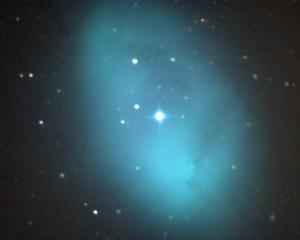
A slender, 25% illuminated crescent moon dominates the scene, easily visible as its light cuts through the darkness. It resembles a smile lighting up the landscape. Beside it, Saturn keeps a quiet vigil. He has always been the melancholic god — Cronos to the Greeks — who once ruled a golden age and then devoured his children to maintain his power. Now, he shines serene and yellow in his celestial exile.
Venus sits below them, fierce and glowing. This is Aphrodite in her morning aspect — not the soft goddess of love, but the bright and demanding one, capturing the eye and igniting old longings. She does not wait to be noticed; when the moon is absent, she is known to cast shadows!

To the east, Cetus, the sea monster, rises from the horizon. He has faded now, becoming more suggestion than creature. Once, he was the terror sent to devour Andromeda. Perseus, winged and clever, turned him to stone. Yet, Cetus remains stitched into the heavens because even vanquished monsters have their place in memory and the sky.
In the northeast, the Great Square of Pegasus — the winged horse born from Medusa’s blood — hovers, tidy and abstract. No wings are visible, no wild gallop to be seen. Just four stars forming a box in the sky. But we remember what he is meant to symbolise: escape, flight, the impossible made real.
This is the sky’s gift on a May morning — not a spectacle, but an inheritance. It is a slow unfolding of myth and light, a collection of stories we carry with us long after we’ve forgotten who told them first.











